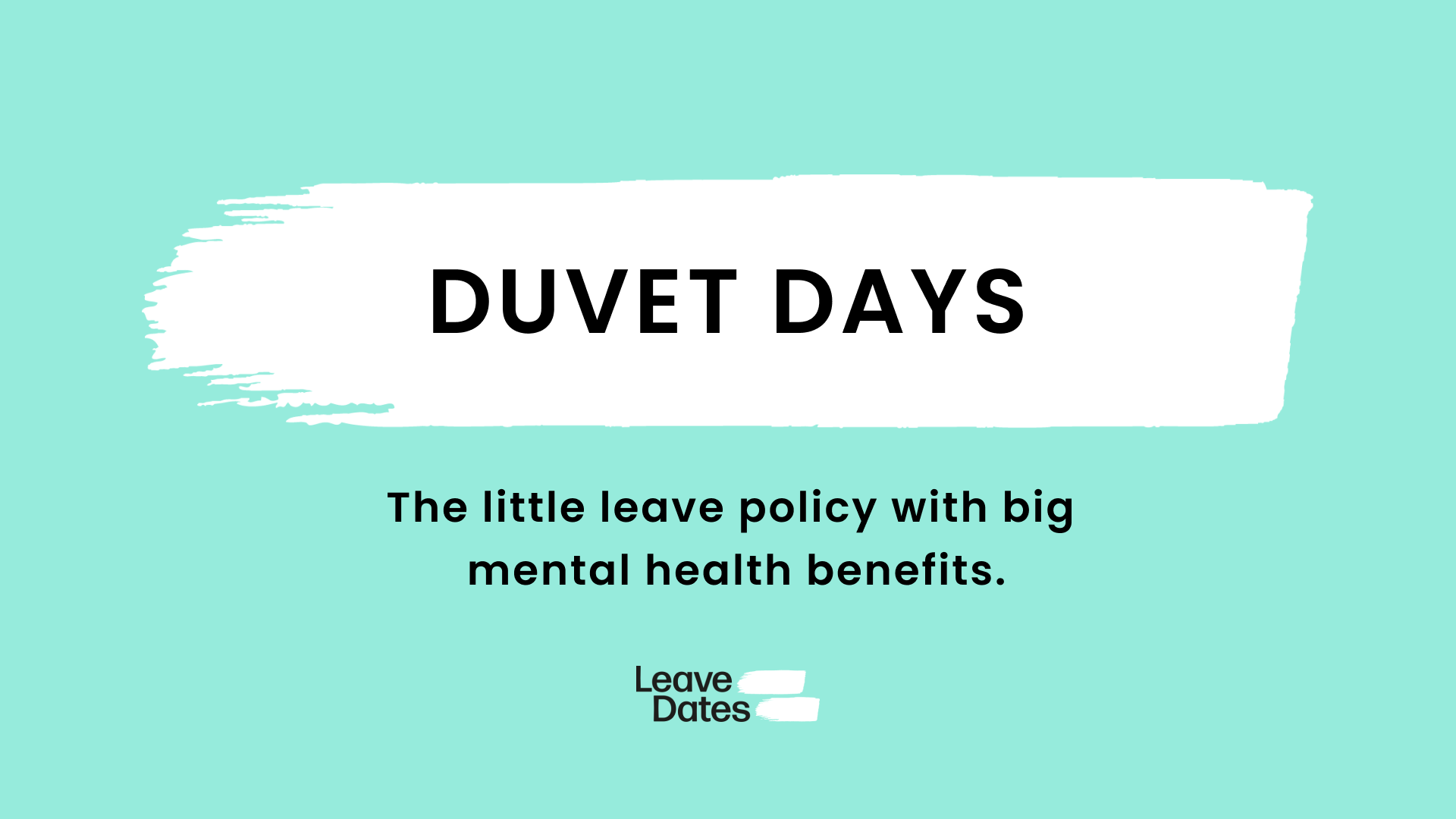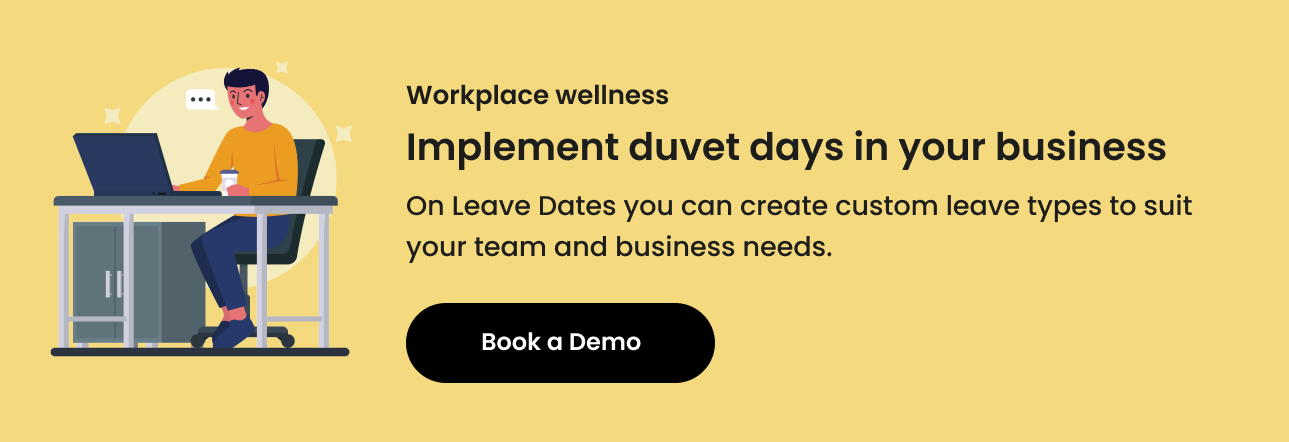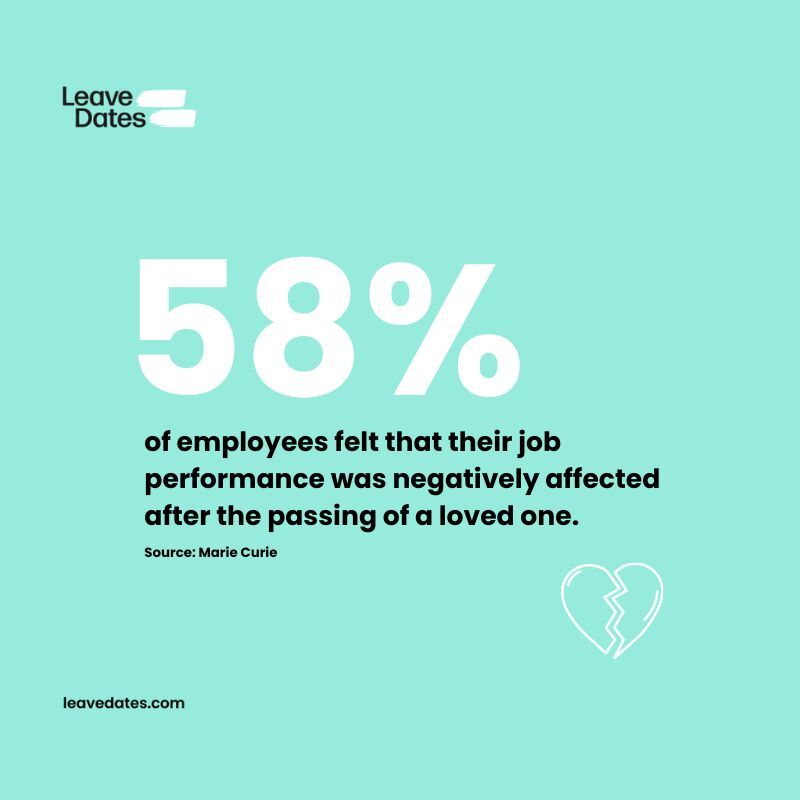
Some days, finding the motivation to get out of bed and attend to life feels impossible. If that feeling drops on a work day and you are fortunate enough to get "duvet days" in your workplace, you'll get the day to recuperate. Best of all, your duvet day is not counted as sick or annual leave and is a no-questions-asked in nature. Understanding what a duvet day is can highlight how this simple leave policy offers significant mental health benefits.
All across the world, people are looking for better mental health support from their employers to keep them going. The long-term impact of COVID measures and the cost of living on top of general life pressures is taking a toll on many; three-quarters of workers in the UK have reported using their sick leave allowance to manage stress.
Duvet days, doona days, whatever you want to call it, it's catching on in many forms.
Did you know? Like the toothbrush, chocolate bars and automatic kettles, duvet days were a British invention. The meaning of a duvet day has evolved quite a bit since its British origins, now recognised globally as a valuable mental health leave policy. It was introduced in the late 90s by PR company August.One Communications, US-based PR company Archetype, then known as Text100, quickly adopted the duvet day (along with the British name). However, they also refer to them as 'mental health days' in some businesses. While they have not become standard practice, they have gained popularity in the UK and worldwide.
London-based SEO agency Type A Media implemented a four-day work week and mental health days "before it was cool", according to their website, with their Managing Director, Ross Tavendale, telling Metro "Every Friday is a duvet day." He reports better success in recruiting talent, as more people are looking for balance in their work life; he also has found a rise in productivity and a fall in sick days.
Across a few ponds, popular Australian muesli company Carman's Kitchen won the AFR Best Places to Work honour for 'Most Outstanding Practice - Employee Wellbeing' in 2021, partly due to their duvet day policy. Known as a 'doona day' in the land down under, Carman's offers their team two days per year to use how they please.
Duvet days are a relatively new concept in Australia, but it is more than just agile small businesses like Carman's that have been able to trial them. HSBC Australia trialled 'wellness days' in 2016 for 12 months, giving their team of approximately 1800 people one day off with 78% uptake and excellent feedback. Today, their wellness days are part of a standard offering, and after five years of service, staff are upgraded to three wellness days per year.
Duvet days and the lingering stigma of mental health issues
While we are slowly but surely improving attitudes to mental health in the workplace, many workers are still concerned that if they take a day off unexpectedly, they may fall into the centre of judgment, rumours or even discrimination in the workplace. Issues of trust play a huge role in the success of a duvet day policy; staff need to know that it is offered in good faith with the expectation that it will be utilised. By normalising duvet days for your entire team, companies can help reduce the stigma around taking time off for mental health reasons, leading to a more supportive work environment.
As duvet days are generally designed to support mental health, management should treat these events with sensitivity and discretion. Suppose a workplace is genuine about creating an environment that promotes awareness around mental health. In that case, it will be seen at all levels of the business and incorporated into the values practised daily by the team; it may even form part of the recruitment process in ensuring candidates are a good culture fit. In creating a culture of acceptance, a colleague experiencing mental health issues will more likely spring back and become a champion of your organisation if they feel they have the space and support to recover. While the humble duvet day is only one policy of many that can improve this culture, it is a great start that goes above and beyond the statutory leave offering.
Mental health and leadership
Business leaders are equally able to benefit from taking a duvet day, giving them the chance to recharge and maintain, or even boost their effectiveness at work. The person in our workplace who is often forgotten in the mental health conversation sits in the lonely spot at the top of the organisation chart, the CEO. The rapid changes we have experienced in work and life since 2020 have pushed many business leaders to the brink, and CEOs are at high risk of burnout. COVID created unprecedented volatility in businesses, demanding they develop and implement new, untested policies almost overnight and leaving many successful companies with uncertain futures. Our CEOs were responsible for every one of these issues, with very few places to turn and pressure to conduct themselves with superhuman stoicism.
The impact of COVID on business leaders is still being felt as we approach the new year, and it is not just in the workplace; the pressure trickles into the home as well. Many people in higher management are great advocates for mental health initiatives for staff, but when it comes to their own, many have to be close to their deathbed before they acknowledge that they need a break. Grace Beverly, founder and CEO of TALA, admitted on the Diary of a CEO Podcast that despite being a fierce advocate for mental health initiatives in her company when it came to herself, it took her being hospitalised with seizures before she took her condition seriously.
Final thoughts
Duvet days are a simple but powerful tool to support the mental health of your employees. Successfully implementing duvet days in any business requires a two-way culture of trust, acceptance and a highly supportive environment. Beyond happy and productive staff, the benefits of duvet days extend to CEOs and high-level managers and help them to remain effective in their roles. By offering and encouraging mental health care at all levels, businesses of all types can make the most of their talented teams.




